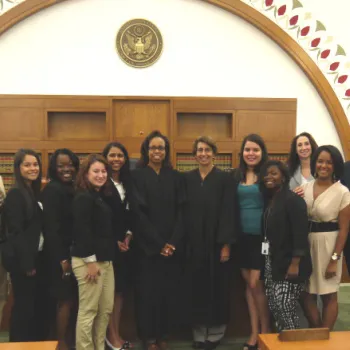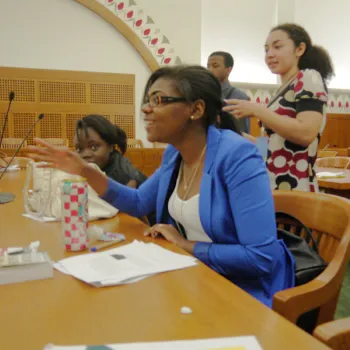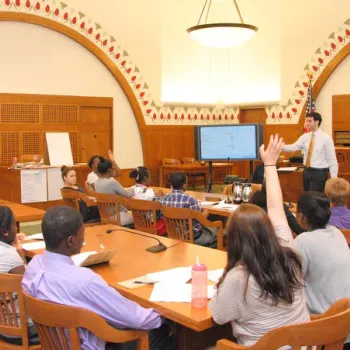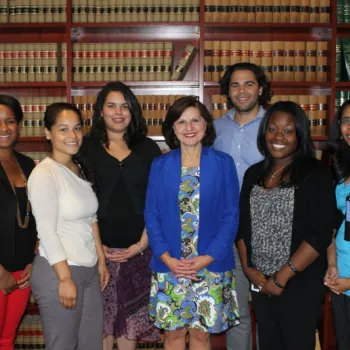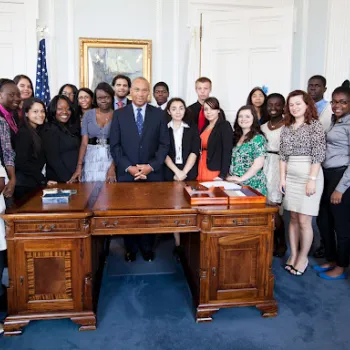Two programs organized each summer by the U.S. District Court for the District Massachusetts teach Boston area high school and college students about the federal judiciary. In the process, the students are helped to discover their own potential.
The Nelson and Lindsay Fellowship programs honor Judge David S. Nelson, and Judge Reginald C. Lindsay. Nelson and Lindsay were, respectively, the first and second African-Americans appointed to the district's federal bench. Both, in their careers, were inspiring role models and mentors to disadvantaged youth. Each summer the court selects eight to 10 Nelson Fellows from high school applicants for a six-week program; five to six college students are selected to be Lindsay Fellows for a nine-week program.
All of the Nelson Fellows come from under-served school systems and go through a rigorous selection process. "We always have twice as many applicants as we can accommodate," said Magistrate Judge Judith Dein (D. Mass.), who, along with Judge Denise Casper (D. Mass.) heads the court programs.
Each Nelson Fellow is assigned to an individual judge. Fellows attend trials with judges and assist in office operations and court management. They also take classes in public speaking and civil rights. They meet attorneys and officers from the Probation and Pretrial Services Office, the Federal Defenders Office and the U.S. Attorney's Office. They also tour several area colleges and get help with college selection and applications. Fellows also participate in community activities, which vary over the years, such as the Greater Boston Food Bank. The culmination of the Nelson Fellowship program is a mock trial.
"The goals of the Nelson Program are to teach our students about the court, to encourage them to go on to college, and to help them to build the friendship and mentor networks that will help them throughout their college years and after," said Dein.
The Lindsay Fellowship Program started three years ago. For the first month Lindsay Fellows are assigned to a judge and learn about various aspects of the court system. For example, they attend a First Circuit argument, learn about the cases argued before the court, and meet with attorneys in both private and public practice. At the same time, they participate in an intensive legal research and writing program, taught by an instructor from a local law school. They also learn about the local law schools and the law school application process. During the second month of the program, each Lindsay Fellow is assigned to either the U.S. Attorney's Office or the Federal Defender Program.
"Our Lindsay Fellows do more than just watch when they join these offices," said Dein. "They're coming off legal research and writing classes and they can do real, substantive work that helps in cases going to court." The program ends with a moot court argument.
Ginny Hurley, the district's outreach and training coordinator, summed up the experience for both court and Fellows: "These programs really do help. We see students come in late June and you wonder if they're the same people when they leave after graduation in August—they've grown so much." And, as Dein added, "these students bring to us life experiences that we need to understand. We're richer for knowing them."
Subscribe to News Updates
Subscribe to be notified when the news section is updated.

